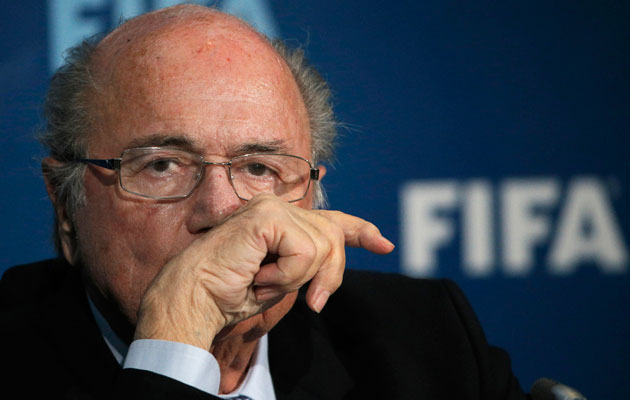Sepp Blatter, in an astonishing U-turn, is to quit as president of embattled world football federation FIFA. He made his announcement at an impromptu press conference at which he admitted that his attempts to drive reform had failed and revolutionary structural change was essential so his successor could start with a clean slate.
Domenico Scala, the highly-rated Swiss businessman who chairs and audit and compliance committee, followed Blatter at the press conference and said that an extraordinary congress could be organised any time between December and March.
He also stated that reforms proposed by the independent governance committee would be brought forward simultaneously, including total transparency on high-level pay, term limits for both the president and the members of the executive committee plus a full reform for selection of members of the exco.
Until the very moment of his address Blatter, as so often in the past, had appeared prepared to ride out the latest storm which exploded over FIFA with the arrests of seven high level FIFA-linked men in Zurich last Wednesday and then the corruption indictments handed down by the United States Justice Department.
The 79-year-old Swiss, who joined FIFA as development officer in 1975, said: “[My] years were closely related to FIFA and this wonderful sport of football. I appreciate and love FIFA more than anything else and only want to do the best for football and for our institution.
“I had decided to stand again as president because I was convinced it was the best option. Now the elections are closed. But the challenges that FIFA is facing have not come to an end [and] FIFA needs profound restructuring.
“Although the members of FIFA have given me the new mandate this mandate is not supported by everyone. This is why I am calling an extraordinary congress to elect a new president.”
Suspicion will linger about the precise reasons for Blatter’s high-speed volte-face, whether he felt driven by the prospect of further judicial action in either or both Switzerland and the United States.
Blatter’s departure will not affect the staging of the World Cup in Russia in 2018 but the status of the 2022 finals in Qatar is much less secure.
The majority of Europe’s nations, having forced Blatter out, will now turn their attention to the finals in Qatar, not only whether they should be staged in the winter but whether they should be staged in the Gulf state at all.






